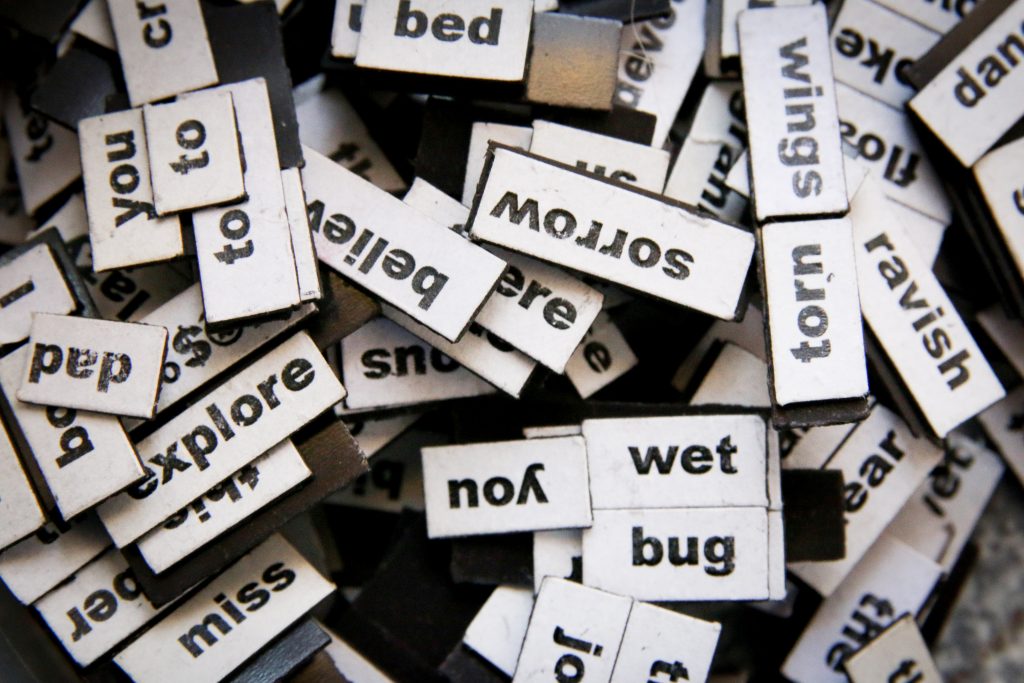Tool #4: Your Writing is Your Thinking – Scientific Writing – Part 8
In this last and final installment (for now) of this mini-series, I want to share one more tool with you. This one is hard to show, though if you read all of the drafts for the paper, I’ve been sharing with you, you’d see it. This is less of a tool and more of a statement of belief, but once I started thinking about writing in this way, it became more enjoyable, useful, and (dare I say) easier.
Tool #4: Writing is Thinking. Don’t worry about the perfect words now (that’s what editing is for); allow the movement from vague idea to actual words on paper to help you clarify your ideas and sharpen your thinking.
There is so much research on the power of words in peoples’ lives. For example, James Pennebaker has a long history of research on the relationship between expressive writing and health (physical and mental). One explanation for why writing about traumatic experiences and negative emotions can improve health is that it helps verbalize the unverbalized. Our brains treat words differently than non-words and this matters for our functioning. If this is true of emotional experiences, I don’t think it’s too far of a stretch to say that taking vague ideas (“I know what I want to say, but just don’t know how to say it!”) into words on paper can also impact the nature of the ideas themselves. (Just think about the massive developmental shifts that happen in children as they learn language; language is an important mechanism of these changes!)

Once I started viewing writing as a means to help me think, it became less of a burden. Rather than needing to have a clear idea of what I wanted to say before I said anything, I had the freedom to write, change, and develop my idea as words escaped onto paper. My writing now is a way to highlight what I know, what I don’t know, and what I need to find out more about. I now approach writing with the explicit understanding that as I write, my thinking will develop; clarity will come and go (and eventually come back if I persist long enough). The thoughts about my paper at the beginning of the process are necessarily different than my thoughts at the end because through the process of writing they have been refined, reflected on, scrutinized, and developed. That is a great thing. There is so much freedom in knowing that where I start doesn’t have to be (and won’t be) where I end. I don’t have to get it right the first time.
In the paper that I’ve been talking about throughout these example blogs, I had four friends (one psychologist, one theologian, and two philosophers) provide feedback on what I thought was a great, almost ready to submit draft. I asked such a diverse group because the intended audience is primarily philosophers/theologians, but I am talking about psychology; I wanted feedback from individuals who could speak to the topic from a variety of interests and expertise. I was hoping that these diverse experts could point out blind spots in my thinking that I couldn’t see myself. I found that each contributed important points to think about. For example, the theologian said,
“I would have liked to see a little more integration with theology…”
This was an idea that I didn’t really know what to do with (though, I think he was right). However, when my psychologist friend said across a number of comments,



I was able to better contextualize what my theologian friend was saying. My paper was out of balance (literally with my structure and word count) and I spent too much space exploring interesting ideas that were not relevant to my central point. This meant that I didn’t have enough space to actually engage the theology I really wanted to. With this feedback and criticism, I was able to reflect on the purpose of these sections and my word choices to make some structural and linguistic changes that, as I see it, ultimately improved my paper.
Importantly, as I reflected on the feedback, I used the comments as a means to look for patterns rather than comments constrained to very specific sentences. Although a specific piece of feedback might be tied to a specific word or sentence, I don’t want to just think about that word/sentence. It’s like the adage about giving a person a fish versus teaching them to fish. When we apply feedback to only specific sentences, we’ve been given a fish (and that sentence may be improved). But, when we ask ourselves how that critique or comment might be relevant to other aspects of the paper, we are learning to fish (or, here, to write).
The feedback here and the rounds of revisions ultimately helped me align words on paper to a better organized idea in my head.

I think it’s fitting that I end this series with the statement (confession?) that writing is my means of thinking. Fitting because so often I hear students make comments about how they don’t know what they want to say and so they can’t write. It’s true that I’ve told students that you need to have a good idea of what you want to say before you write, but a good idea is not the same thing as your final idea (or a perfect idea). I want to free you from the pressure of knowing exactly what to say before you’ve said it. You can (and should) start writing before you know exactly what you want to say. However, when you say something the first time, that should not be the final time. When you use writing to develop your thinking, it is absolutely imperative that you revise your work1. Failing to revise your writing short changes your thinking process; your first draft (or your second draft) is not your “done draft.” Really give yourself—and your writing—the time it needs to scaffold, challenge, and hone your thinking.

Scientific writing, even though it has an “end” (you will eventually turn your paper in!), it is meant to capture a story of discovery. And discovery is ongoing.
I’d love to hear from you: what do you think of this idea? What do you think of the relationship between writing, feedback, and thinking?
Also, although this mini-series is ending, that doesn’t mean it’s over. (What?) What else do you want to know about writing? What problems, ideas, or tools do you want to know more about? Let me know (and I’ll get to writing soon)!
___________________________________
1Even if you don’t explicitly think of writing as thinking, it’s really important that you edit and revise. I think my argument holds whether you recognize the influence of writing on your thinking or not.
If you found this blog helpful, check out the overview of the whole series here, so that you can find more useful information to develop your writing.

9 Comments
I often have the tendency of not moving on to the next sentence or next paragraph because I make adjustments as I go. I am the type of person who cannot move on because of my choice of words, but I have changed my way of thinking and just typed on and on without making edits and leaving those for the end as you mentioned. If you just type or write out your thoughts as you say, it makes developing your paper so much easier.
Camilla, thank you for sharing your personal process!
I believe feedback is essential in order to grow in many aspects of life. It helps you to figure out what your doing right or wrong and how you can make changes or to continue doing what you do.
Yes!
Getting other people to review your writing is crucial in order to submit your best work. I agree that getting different minds who have expertise in other fields of study does really help because different minds will interpret a sentence or paragraph differently. Letting your mind flow onto paper is a lot easier than trying to perfect each sentence as you go. I want to get my thought down on paper as fast as I can so then I can go back later and make the changes I want to. I enjoy writing because I feel like it relieves my brain and makes me think and explain in depth on paper more than what I would do just thinking to myself.
I love that you describe writing as “relieving your brain.” This is true on so many levels (Pennebaker is a researcher who first explored how expressive writing is beneficial–even in things like preventing the common cold!!). My thinking definitely improves when I offload some of it onto paper, to help organize my ideas. It’s a decrease in the “cognitive overload” of the thinking process!
I didn’t think that this whole process could be that complicated. Until this article io really never considered doing what she did I had a good time reading this.
Hi Dr. Smith,
I really enjoyed reading through your post as it offered a new perspective on writing. I know in my personal experience when I am writing (typically for a school assignment) I tend to try to perfect every sentence rather than letting my thoughts run and it ruins my train of thought more often than not. I also agree that feedback is key. I loved that for your writing you found friends from different studies/ backgrounds to help read through your work to help ensure that it makes sense to more people with various backgrounds. I look forward to reading more of your posts!
Thanks for sharing, Allison! I definitely let my thoughts run, especially as I’m trying to figure out what they are 🙂 There is a time and a place for those perfect sentences….but it’s most certainly not when we start!